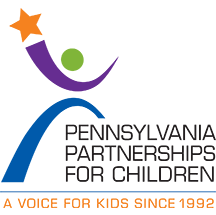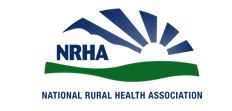- Telehealth Study Recruiting Veterans Now
- USDA Delivers Immediate Relief to Farmers, Ranchers and Rural Communities Impacted by Recent Disasters
- Submit Nominations for Partnership for Quality Measurement (PQM) Committees
- Unleashing Prosperity Through Deregulation of the Medicare Program (Executive Order 14192) - Request for Information
- Dr. Mehmet Oz Shares Vision for CMS
- CMS Refocuses on its Core Mission and Preserving the State-Federal Medicaid Partnership
- Social Factors Help Explain Worse Cardiovascular Health among Adults in Rural Vs. Urban Communities
- Reducing Barriers to Participation in Population-Based Total Cost of Care (PB-TCOC) Models and Supporting Primary and Specialty Care Transformation: Request for Input
- Secretary Kennedy Renews Public Health Emergency Declaration to Address National Opioid Crisis
- Secretary Kennedy Renews Public Health Emergency Declaration to Address National Opioid Crisis
- 2025 Marketplace Integrity and Affordability Proposed Rule
- Rural America Faces Growing Shortage of Eye Surgeons
- NRHA Continues Partnership to Advance Rural Oral Health
- Comments Requested on Mobile Crisis Team Services: An Implementation Toolkit Draft
- Q&A: What Are the Challenges and Opportunities of Small-Town Philanthropy?
Trump Will Withhold Money from Schools that Require COVID Vaccines
Pres. Trump ordered on Friday that federal funding be withheld from schools and universities that require students to be vaccinated against COVID, White House officials said, as another step in the administration’s campaign against coronavirus vaccine requirements. Read more.
Large Healthcare Companies Redistribute Most Profits to Shareholders, Study Finds
Researchers suggested that policymakers encourage reinvestment of capital into patient care and limit share buybacks based on the findings. Read more.
Federal Funding for Navigator Programs Cut
The Centers for Medicare and Medicaid Services reduced funding to $10 million nationally for the 2026 Navigator Program for states using the federally facilitated marketplace, Healthcare.gov. A unanimous, bipartisan effort by the PA Legislature in 2019 moved Pennsylvania away from the federally facilitated marketplace, Healthcare.gov, to a state-based exchange, Pennie. This shields Pennsylvania from these cuts and from the ebbs and flows of federal funding fluctuations. It has allowed Pennsylvania to take control of operations and customer services at a significantly lower cost and use the financial savings to launch a reimbursement program to lower premiums. See the CMS Press Release.
Pennsylvania Health Law Project Releases Updated Medicaid and Medicare Resources
Income, assets and household size determine eligibility for some Medicaid and Medicare programs. The Pennsylvania Health Law Project (PHLP) has a resource library with helpful guides to assist consumers with enrollment into the Medicare Savings Program, Part D Extra Help, Medical Assistance for Workers with Disabilities and other programs.
HIPAA Security Rule Notice of Rulemaking
HHS recently released the HIPAA Security Rule to Strengthen Cybersecurity of Electronic Protected Health Information (PHI). The proposed rule attempts to address cybersecurity best practices, methodologies, and guidelines that would significantly impact Community Health Centers. Please view the recording and PowerPoint slides from NACHC’s February webinar on the proposed rule to learn more. We will circulate a comment letter template on Friday, Feb. 28, so FQHCs can tailor their feedback and ensure their voice is heard. The deadline for comments is Friday, March 7. To help us craft a strong comment letter, please send your thoughts and feedback on the proposed rule to regulatoryaffairs@nachc.org.
House GOP Eyes $880B in Healthcare Cuts
House Republicans released a budget blueprint that orders the primary healthcare committee to slash spending by $880 billion. The Budget Committee draft is the first step in an expedited process known as budget reconciliation that Republicans are using to extend tax cuts from Pres. Donald Trump’s first term, as well as to fund border security, energy and defense initiatives. The budget resolution does not spell out how the Energy and Commerce Committee must find $880 billion in spending cuts over the next decade. But Medicare and Medicaid are by far the largest programs under its jurisdiction, and Trump has repeatedly vowed not to touch Medicare as he seeks to renew tax cuts for corporations and wealthy households that are due to expire at the end of the year. Source: NBC News
Pennsylvania Governor Files Lawsuit Challenging Federal Funding Freeze
Pennsylvania Govern Josh Shapiro filed a lawsuit challenging the Trump Administration’s unconstitutional freeze of federal funding. Even after multiple court orders to release the federal funds and Gov. Shapiro’s engagement with Pennsylvania’s federal representatives, state agencies still remain entirely unable to access $1.2 billion in federal funding, with an additional $900 million requiring an undefined review by federal agencies before it can be drawn down. To ensure the interests of the commonwealth and its residents are protected, Gov. Shapiro is taking legal action to restore access to this funding.
Click here to learn more.
New Report Released Highlighting Importance of Medicaid Coverage for Military Families

In partnership with the Georgetown Center for Children and Families, Mission: Readiness in Pennsylvania released the report Medicaid: Important for Military Families & Future Readiness this week. As the threats to Medicaid continue to be at the forefront of Congressional activity in Washington, the report underscores how the program serves as a critical safety net for families of active-duty service members and veterans.
An estimated 860,000 Medicaid enrollees have TRICARE (which provides insurance to active-duty service members and their dependents, as well as options to National Guard and Reserve members and their families) as their primary source of health care coverage, including 220,000 children. Almost one in ten children (10 percent) of active-duty service members with TRICARE also have Medicaid coverage. In addition, 3.4 million children of veterans are estimated to depend on Medicaid for health care. Pennsylvania’s active-duty family member population is just over 4,000.
As a follow-up to the report release, Brigadier General (Retired) George Schwartz, Ed.D., US Army and Pennsylvania National Guard, authored an op-ed making the case that to maintain a healthy military force, a healthy workforce, and healthy children, we need to keep Medicaid strong.
Thriving PA Releases First-Ever Infant/Toddler Early Intervention Data Brief
 Infant/Toddler Early Intervention (EI) is one of the newest areas of PPC’s advocacy work within the Early Learning Pennsylvania coalition, specifically within the Thriving PA campaign focused on perinatal and children’s health.
Infant/Toddler Early Intervention (EI) is one of the newest areas of PPC’s advocacy work within the Early Learning Pennsylvania coalition, specifically within the Thriving PA campaign focused on perinatal and children’s health.
A key initial goal of the EI workgroup—of which PPC is a member—is to establish statewide and county-level data baselines to measure our progress moving forward. After working with the Office of Child Development and Early (OCDEL) for the past year, we are pleased to share the release of Infant and Toddler Early Intervention: What Initial Data Reveals for Pennsylvania.
A key initial goal of the EI workgroup—of which PPC is a member—is to establish statewide and county-level data baselines to measure our progress moving forward. After working with the Office of Child Development and Early (OCDEL) for the past year, we are pleased to share the release of Infant and Toddler Early Intervention: What Initial Data Reveals for Pennsylvania.
The data brief marks our first comprehensive review of EI data in the state and covers indicators ranging from enrollment and eligibility to fiscal information. Specific elements include:
- Percentage of infant/toddler EI services covered by Medicaid in Pennsylvania
- Types of infant/toddler EI services paid through Medicaid in Pennsylvania
- The rate of enrollment/eligibility determination by referral information
- Children enrolled by race and ethnicity
- Children enrolled by sex; and
- Rates of child use of specific types of infant/toddler EI services.
This is the first step in our deeper dive into Early Intervention data, so stay tuned. PPC will also advocate for additional state funding for Infant/Toddler EI in the upcoming FY 2025-26 budget.
NRHA CEO Certification Program Celebrates Five Years with New Leadership Development Offerings

The NRHA CEO Certification Program is celebrating five years of helping rural health Executives achieve their hospital and career goals. Since its first cohort launched in February 2020, the program has trained, tested and certified over 500 rural healthcare leaders, strengthening hospitals, clinics, and communities through certified rural health leadership.
“This program is essential for CAH or Rural CEOs, whether experienced, new, or aspiring. It absolutely builds assurance, confidence, knowledge, and a collegial trusted network,” – A recent CEO Certification Program graduate.
Introducing New Leadership Development Offerings
Witnessing the impact the programs have on individuals and their teams as they more confidently lead with increased knowledge and a new network of motivated successful peers CRHL is launching Cultural Transformation, a program designed to enhance leadership effectiveness and increase employee engagement. By fostering a thriving workplace culture, this initiative helps organizations, and their teams succeed while better serving their communities.
In addition to Cultural Transformation, CRHL is expanding its leadership development programs to include:
- Leadership Coaching: Personalized, one-on-one coaching to help leaders refine their strategies and drive meaningful change within their organizations.
- Executive Coaching: Specialized coaching for senior leaders to address challenges unique to rural health executives.
- Group Coaching:A cost-effective coaching alternative where diverse members collaborate in structured sessions to enhance leadership effectiveness.
- Rural Health Management Academy: A program designed to assist new and first-time rural health managers in strengthening leadership skills to ensure the long-term viability of rural hospitals, clinics, and communities.
- Rural Health Leadership Academy: A combination of self-guided and group learning, helping rural health leaders develop new leadership skills and improve the sustainability of rural healthcare delivery.
“These expanded services represent the next chapter for CRHL,” said Sydney Grant, Chief Learning Officer at CRHL. “As we celebrate five years of empowering rural health leaders, we are excited to bring forward new opportunities for leadership growth and organizational success.”
Looking Ahead
CRHL remains dedicated to improving rural healthcare by stabilizing hospitals through leadership education and engagement. By working alongside rural health executives and industry experts, CRHL continues to develop specialized programs that elevate leadership excellence, ensuring sustainable healthcare for rural communities.
Rural healthcare leaders and organizations interested in exploring these expanded offerings should reach out Kodi Smith, kodis@nrhasc.com or (309) 233-4228.
About the Center for Rural Health Leadership
The Center for Rural Health Leadership (CRHL) equips rural healthcare leaders with the knowledge and tools needed to create stronger, more sustainable healthcare organizations. Through specialized programs and expert-driven education, CRHL is committed to developing the next generation of rural healthcare leaders and strengthening healthcare in rural America.
